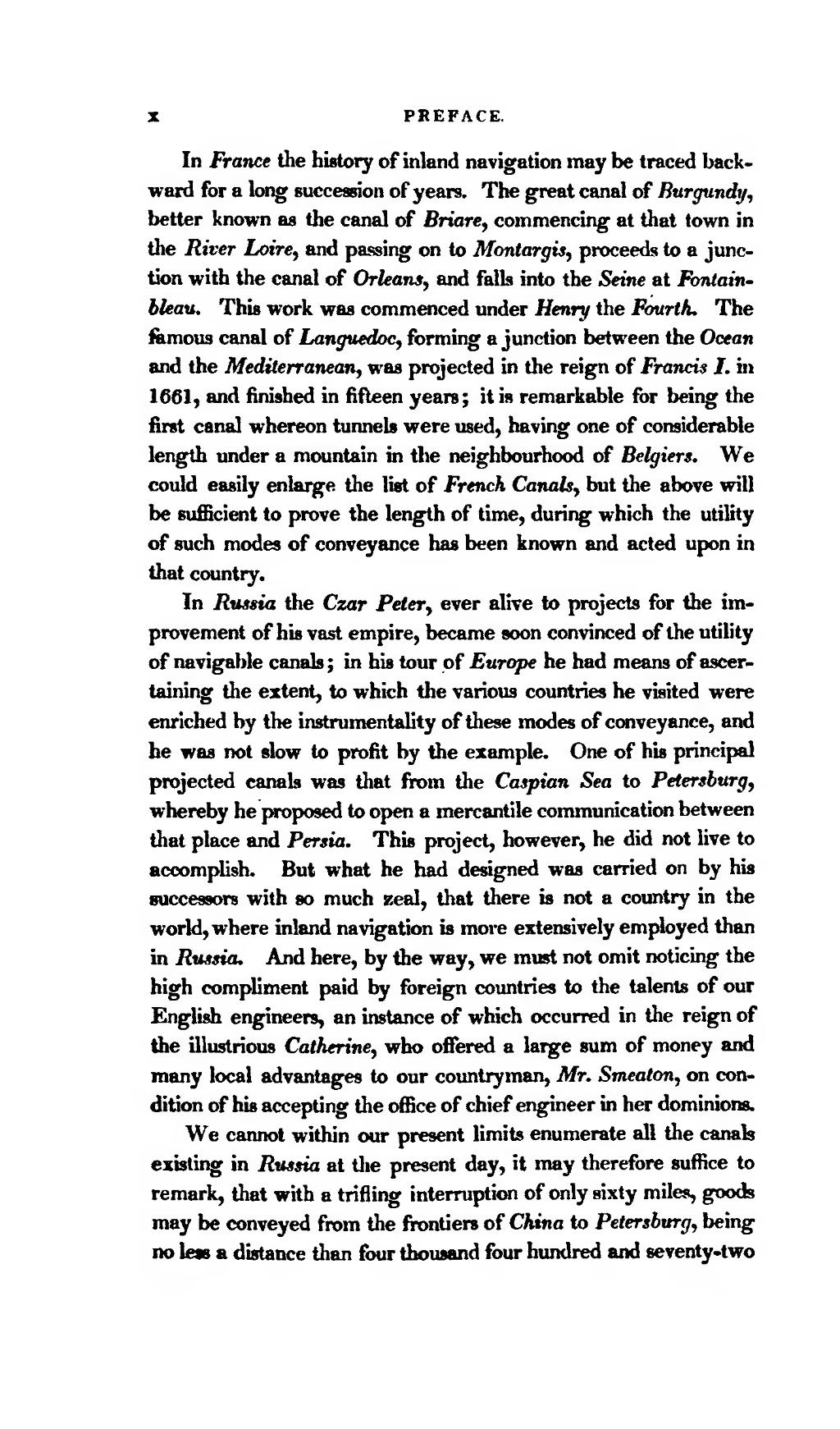In France the history of inland navigation may be traced backward for a long succession of years. The great canal of Burgundy, better known as the canal of Briare, commencing at that town in the River Loire, and passing on to Montargis, proceeds to a junction with the canal of Orleans, and falls into the Seine at Fontainbleau. This work was commenced under Henry the Fourth. The famous canal of Languedoc, forming a junction between the Ocean and the Mediterranean, was projected in the reign of Francis I. in 1661, and finished in fifteen years; it is remarkable for being the first canal whereon tunnels were used, having one of considerable length under a mountain in the neighbourhood of Belgiers. We could easily enlarge the list of French Canals, but the above will be sufficient to prove the length of time, during which the utility of such modes of conveyance has been known and acted upon in that country.
In Russia the Czar Peter, ever alive to projects for the improvement of his vast empire, became soon convinced of the utility of navigable canals; in his tour of Europe he had means of ascertaining the extent, to which the various countries he visited were enriched by the instrumentality of these modes of conveyance, and he was not slow to profit by the example. One of his principal projected canals was that from the Caspian Sea to Petersburg, whereby he proposed to open a mercantile communication between that place and Persia. This project, however, he did not live to accomplish. But what he had designed was carried on by his successors with so much zeal, that there is not a country in the world, where inland navigation is more extensively employed than in Russia. And here, by the way, we must not omit noticing the high compliment paid by foreign countries to the talents of our English engineers, an instance of which occurred in the reign of the illustrious Catherine, who offered a large sum of money and many local advantages to our countryman, Mr. Smeaton, on condition of his accepting the office of chief engineer in her dominions.
We cannot within our present limits enumerate all the canals existing in Russia at time present day, it may therefore suffice to remark, that with a trifling interruption of only sixty miles, goods may be conveyed from the frontiers of China to Petersburg, being no less a distance than four thousand four hundred and seventy-two
